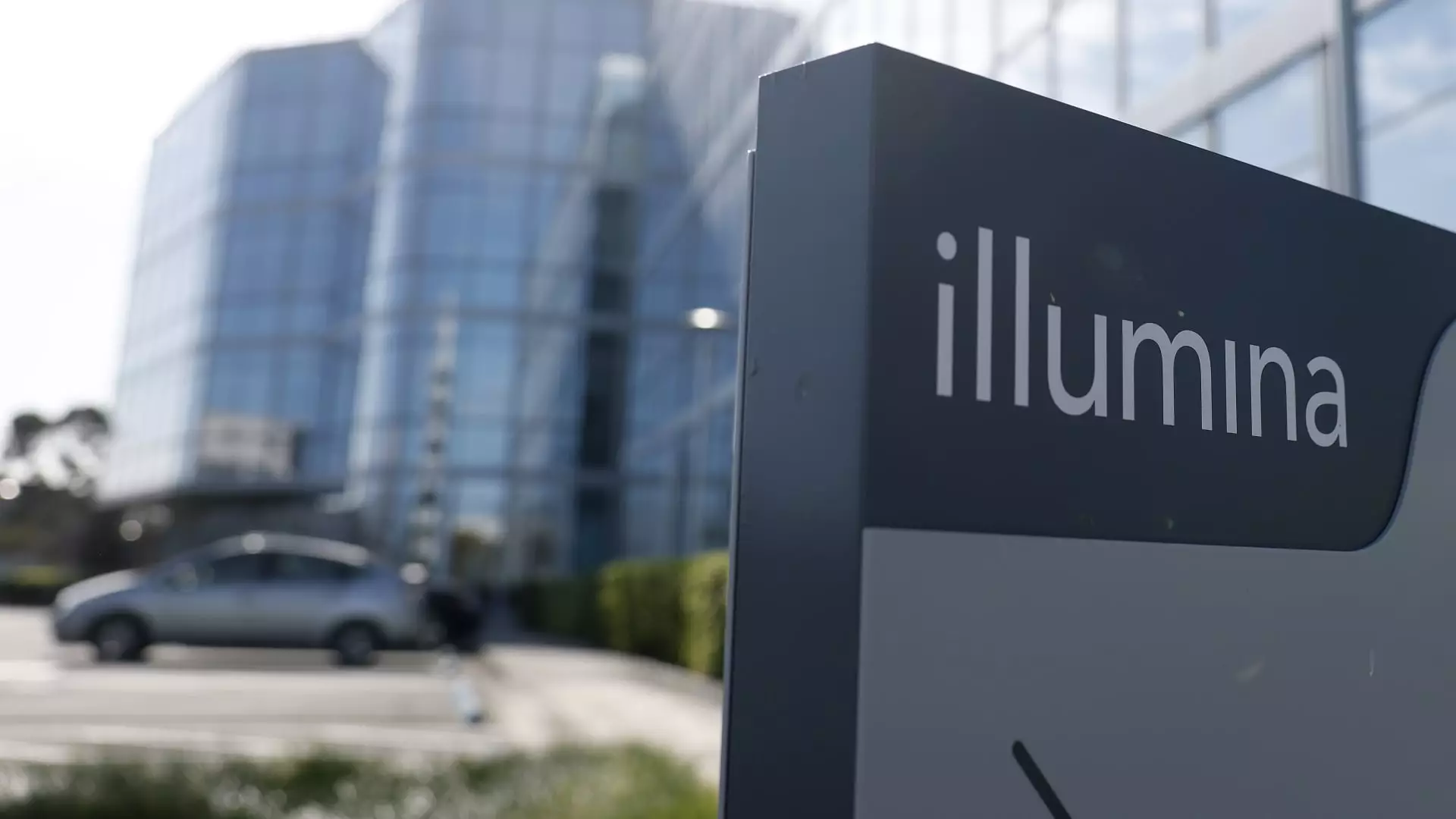Illumina, once considered the vanguard of genomic sequencing technology, has witnessed a meteoric rise that mirrors the thrill and volatility of the stock market. Not long ago, the company’s stock peaked at an astonishing $511 per share, fueled by surging demand during the COVID-19 pandemic when genomic solutions became a public health necessity. A sharp increase in revenue—from $3.2 billion in 2020 to $4.5 billion in 2021—painted an optimistic picture for the future. Illumina’s innovation, particularly its reversible terminator-based sequencing technology, secured its position as a market leader, controlling over 80% of the global genomic sequencing market. Yet, what followed was not the anticipated growth trajectory but a series of misfortunes that have severely impacted the company’s valuation, now plummeting to about $12.67 billion.
The Great Illumina Gamble: The Grail Fiasco
At the heart of Illumina’s current plight lies the disastrous saga surrounding its Grail operation. Initially a spinoff in 2016, Grail was intended to revolutionize early cancer detection through groundbreaking technology. However, this ambitious vision turned sour when Illumina’s attempt to reacquire Grail for $8 billion met regulatory resistance. Without securing approval from key regulatory bodies, Illumina found itself ensnared in a web of fines and penalties, resulting from a deal the European Commission deemed harmful to competition. This miscalculation not only led to reputational damage but also drew the ire of activist investors like Carl Icahn, who had vested interests in the company. In an environment where trust and prudence are of paramount importance, Illumina’s bold maneuver became a cautionary tale of overreach.
Transitioning from Turmoil: A Ray of Hope?
Despite the setbacks, hope looms on the horizon. Illumina’s recent changes in leadership, with the addition of Keith Meister from Corvex Management to its board, suggest a shift toward a more disciplined and strategically focused approach. Meister’s track record across various sectors—particularly in biotech—should inject fresh insights that can navigate the company through its current transitional phase. His previous service on the board of GeneDx, an important client of Illumina, signifies an understanding of the industry’s nuances that could foster more strategic alliances.
The upcoming transition to the next generation of sequencing technology, the NovaSeq X, heralds possibilities of revitalized growth. However, it also brings with it the inherent risk of short-term revenue decline. In the world of investments, especially within a sector that thrives on advancements and innovation, the path to success is riddled with uncertainty. Consequently, savvy investors will need to weigh the potential rewards against the looming risks.
The Market’s Mixed Signals: A Closer Look at Valuation
Illumina’s valuation has suffered dramatically; dropping from $70 billion to less than $13 billion is a sobering statistic that raises questions about shareholder confidence. The company’s razor-and-blade business model, which yields high margins on consumables compared to the equipment sales, might provide a buffer against short-term dips. Nonetheless, the decline in stock price speaks volumes about market apprehension, which is often shaped by a broader perception of risk and reward.
The fallout from geopolitical tensions affecting Illumina’s operations in Russia and China compounded the issue, driving stakeholders to reevaluate the company’s strategic posture. The combination of reduced funding in biotech, along with uncertainties surrounding regulatory environments, paints a rather grim landscape. Investors are left to grapple with the question: can Illumina’s new leadership rebuild the lost trust and stabilize the company’s footing against competitive pressures?
Illumina’s Future: Looking Beyond the Storm
As Illumina charts its way forward, the onus rests on its ability to rebalance its focus from missteps and distractions toward a sharper awareness of market demands and technological advancements. The integration of seasoned board members with rich operational backgrounds can serve as either a panacea or a break from the cycle of poor decision-making that led to its current predicament. The fact remains that innovation is the pillar upon which Illumina’s future success will rely.
The biotech sector is notorious for its rapid shifts, and those willing to adopt an agile mindset may reap substantial rewards. Too often, companies become mired in legacy practices that stifle creativity and forward motion. For Illumina, the potential to become a beacon of innovation in genomic analysis has never been more pressing. As the company prepares to navigate uncharted waters with new leadership and strategic intent, the question is whether it will rise to meet the challenge or continue to falter under the weight of its past decisions.

